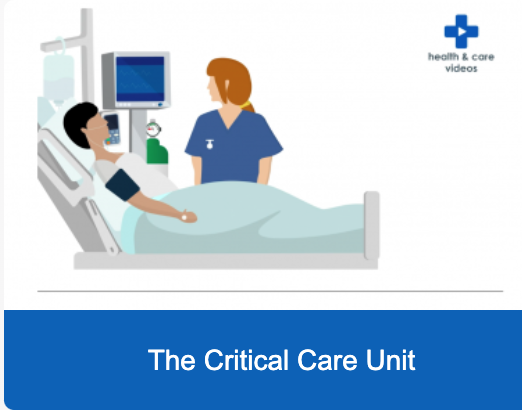So what sort of end of life decisions might need to be made if you suffering from Covid-19? Like advance care planning with other diseases, you are stepping through a series of “If, then”s.
Here’s information from the UK’s Royal College of Physicians about what happens in Covid-19 critical care. It reveals that there are different paths of care and therefore communication about your path will vary.
It can be found at: https://www.criticalcarenice.org.uk/patient-information
- “The most common serious problem people experience in COVID 19 infection is difficulty with breathing. For many people, this can be treated outside of the hospital, including in your own home.”
- “It may also be treated in a hospital ward with oxygen given through a face mask. For some people however, giving oxygen via a face mask is not enough to keep them alive. To get enough oxygen the person may need to be admitted to critical care for further treatment.” (Critical care is known in other places as Intensive Care).
- “Critical Care is a place that provides specialist care for people when they become critically unwell. Critical Care treatment supports a person’s breathing and other organ functions to keep them alive while allowing the illness to run its course.”
- “Treatment on critical care might include needing to be given heavy sedation (medication to keep you asleep to tolerate the breathing support needed) and a tube inserted into the windpipe to connect to a ventilator (a machine to support breathing). Sadly, despite this intensive treatment many people who are admitted to Critical Care will still not survive.”
- “Despite all our efforts on critical care, some people do not survive. Currently about 1 in 4 people do not survive their critical care admission regardless of their age.”
- “If a person is frail (or has a number of medical conditions), their chances of survival are lower. At present, we believe that up to 4 in 10 people who come to critical care with COVID 19 do not survive their illness. In other groups of patients, including those who are frail, the survival rate is much lower, with 6 in 10 or more of people with COVID 19 dying despite a period of ventilation.”
- “At present preliminary data in the UK suggests that people are spending 3-4 days under sedation and being ventilated, but it has been excess of 10-days. “
- “Physical recovery from 7-10 days of ventilation in a young and fit patient is generally 3-6 months, however it can take longer. Emotional and psychological recovery can take up to a year. Full recovery is much less likely to happen if a person is frail or has a number of medical illnesses already. You may never reach the same quality of life as you had before as there may be ongoing weakness, lung or other health problems related to the Critical Care stay.”
You can decide not to go to hospital.
This site goes on to explain the alternative to this intensive care, of not going to hospital and staying in your own home, with no ventilators for life support.
In this case drugs would be give to relive symptoms. The UK site says family are more likely to be able to visit because there are less restrictions. But this would currently only apply if you were in a family home.
It points out that without the ventilation you will not live as long. But there are circumstances in which your doctors and medical team might suggest to you that this is actually going to be easier and cause you less suffering and pain, in a situation in which you have very little chance of surviving longer than the period of ventilation.
(Note that if this is the case you are likely to be unconscious, so the discussion would need to be had with a ‘person responsible’. So the ideal is for to have had a discussion with this person before hand, and to have officially nominated them as your ‘enduring guardian’.)
The emphasis would change from wanting to save your life, at whatever physical cost, to making you as comfortable as possible.
You can refuse to go into hospital or into an intensive care unit but this would be on the basis that the outcomes have been properly explained to you, if you choose not to.
What happens in critical care is explained really well in the following videos, also from the UK. http://healthvideos.hci.digital/criticalcare
We recommend your first video in this set would be – the last one! – which looks like this :

To find out more about intensive care by Australian specialist, Dr Ken Hillman, go to:
